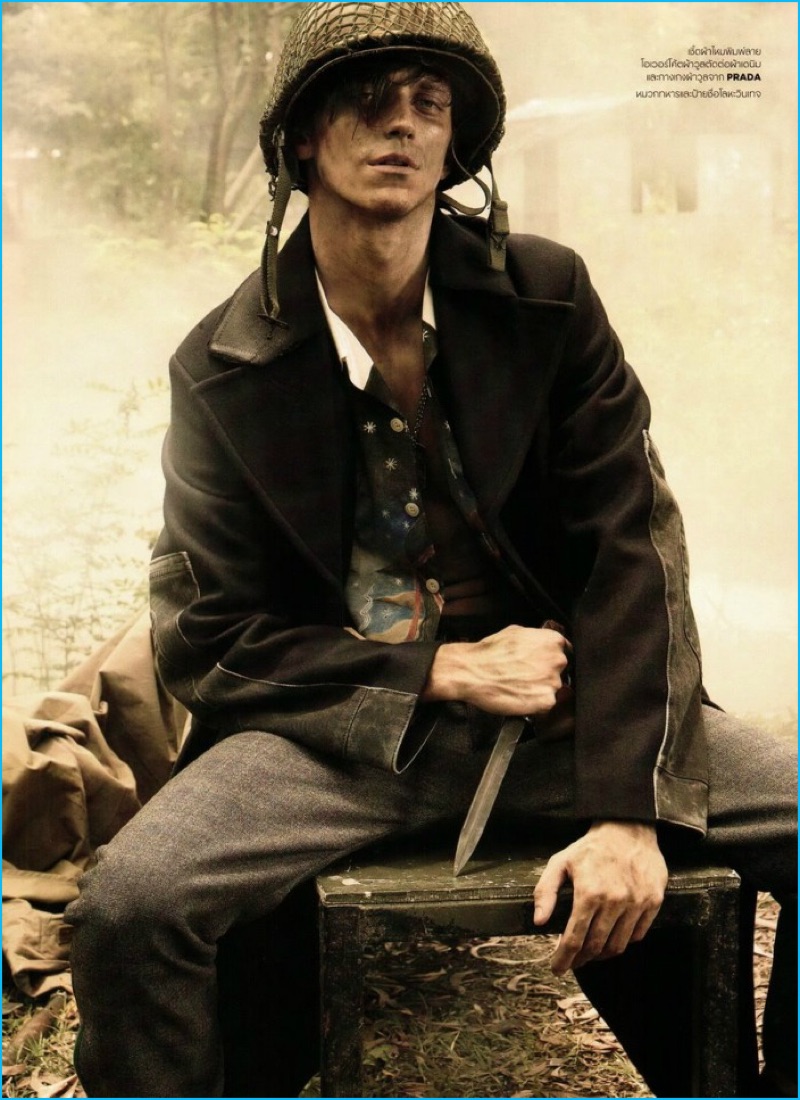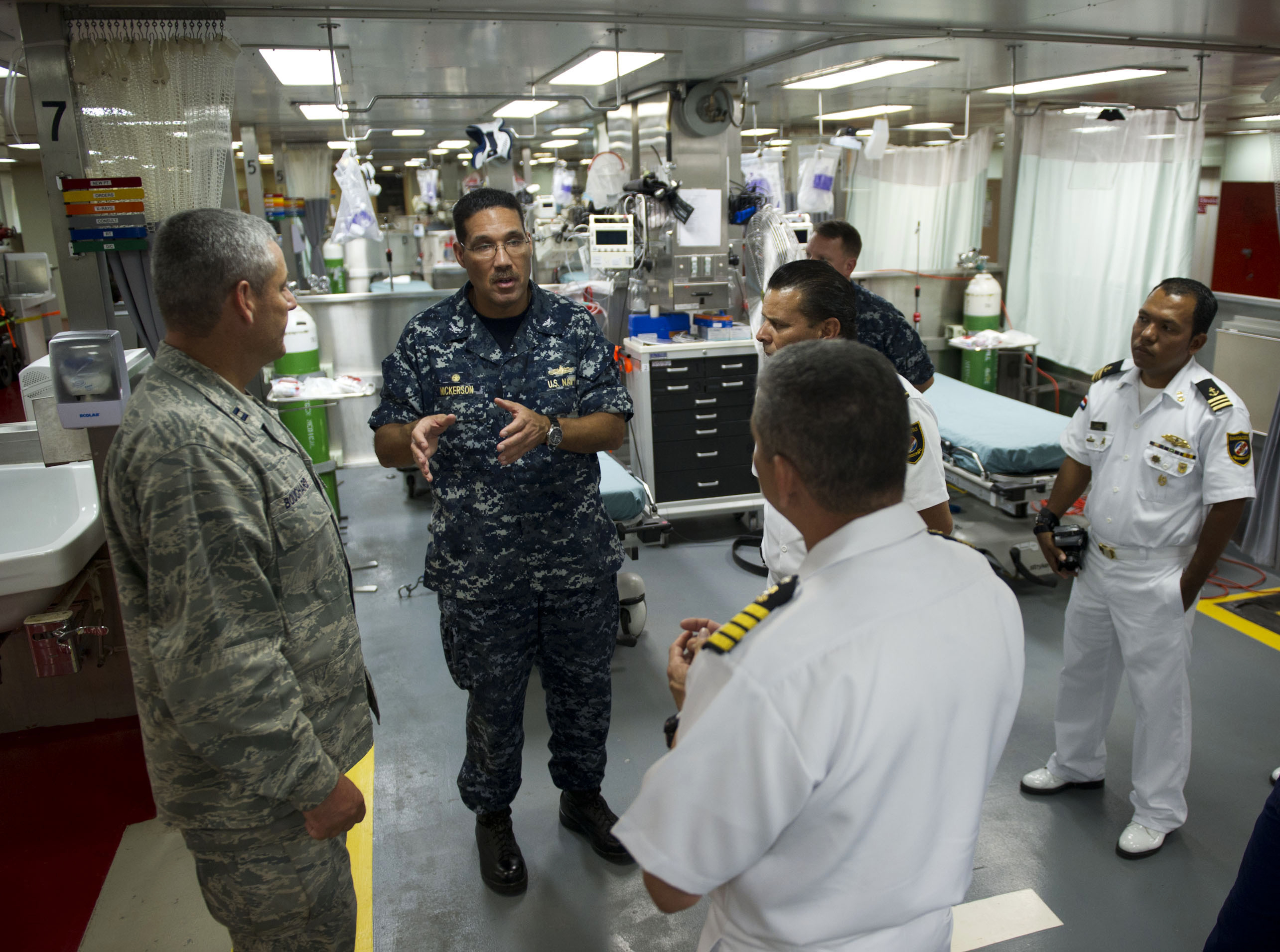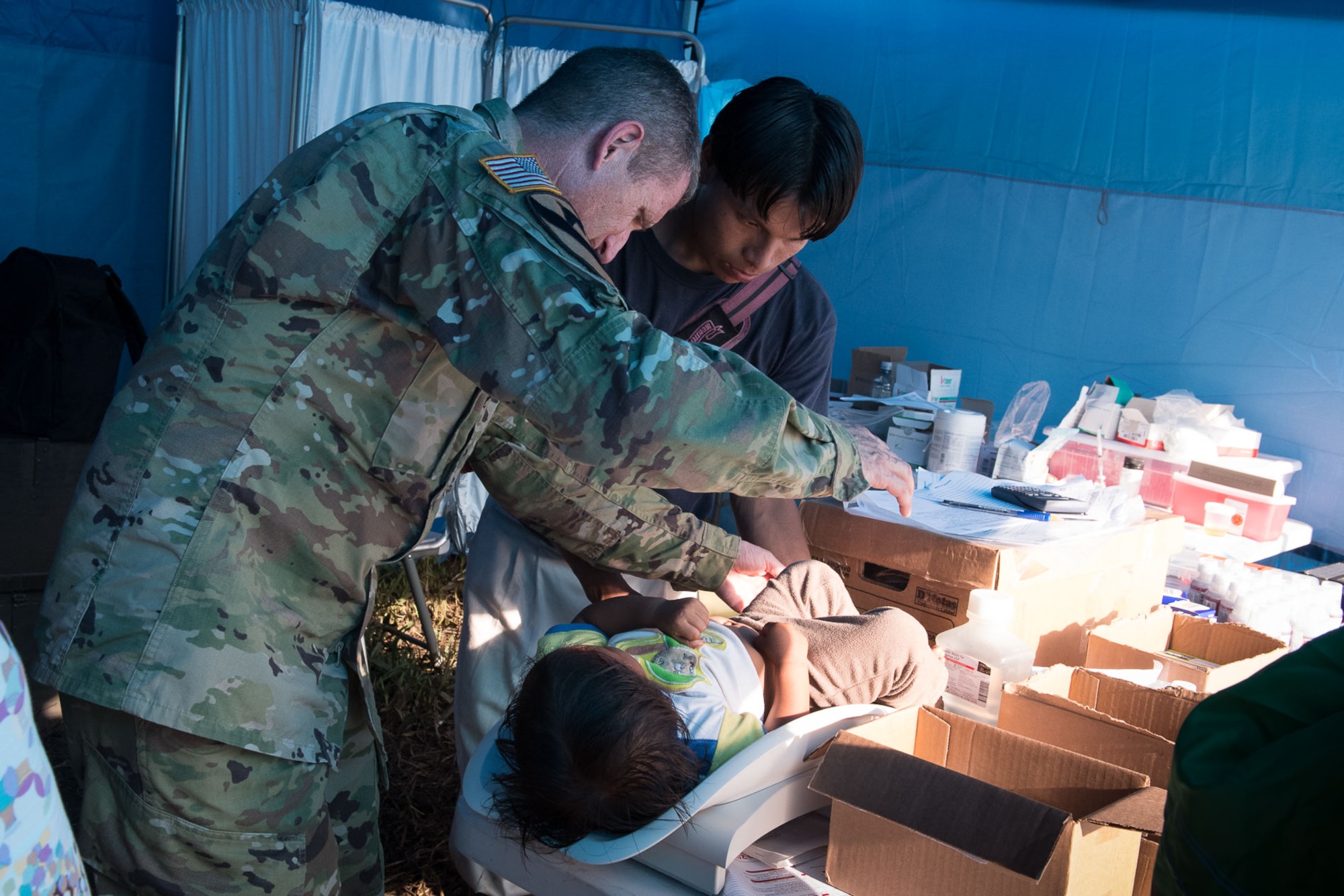Costa Military - Last month, Costa Rica's Public Safety Unit participated in the regional "War Games" in Tolemaida, Colombia, where they competed based on physical fitness, marksmanship, water skills and tactical skills. The event, called "Fuerzas Comando," is an initiative of the US Southern Command to promote cooperation, trust, readiness and interoperability between international special forces and other military and police units.
Special forces from 17 countries in the Americas - including Costa Rica - participated in the Fuerzas Comando skills competition from 23 to 31 July. The event was divided into exercises for the assault team and the sniper team. When the week's scores were tallied, Team Colombia was first with 3,065 points and Team USA was second with 2,855. Costa Rica was 10th with 2,020 points - not bad for a country with no military. after the 1948 constitutional ban.
Costa Military
Although Costa Rica does not have an army, it does have a well-trained and heavily armed national public security force. Seven members of Costa Rica's "Special Intervention Unit" (Unidad Especial de Intervención or UEI in Spanish) participated in Fuerzas Comando 2014. The UEI is part of a larger specialized security apparatus known as the Department of Intelligence and Security, or DIS.
Why Doesn't Costa Rica Have A Military?
Officially, the DIS is a specialized police force that is not military in nature, tasked with informing the President of Costa Rica on matters related to national security. UEI carries out operations against terrorism and drug trafficking. UEI director of operations Miguel Torres said the elite force was formed in 1982 after he and his colleagues returned from training with Israeli special forces in Panama. UEI has approximately 70 members.
DIS Director Mariano Figueres told The Tico Times: "The UEI is a police intervention unit, not for military purposes. It engages in drugs and other organized crimes when the level of risk is high, to monitor and protect the police and/or judicial institutions."
However, the members of these elite forces certainly look more like members of the military than the police. During Fuerzas Comando, UEI members wore army fatigues and carried assault rifles. A video on YouTube shows heavily armed DIS members flying a helicopter near the Nicaraguan border.
The DIS is not part of the national police, but receives its budget and orders directly from the President of Costa Rica. The organization was formed in accordance with sections 13 and 17 of the General Police Act. Article 19 confirms that the purpose of the UEI is "to carry out high-risk operations against terrorism and drug trafficking".
New Mexico Military Police Give A Makeover To Costa Rican School Site > National Guard > State Partnership Program News
For 2014, the combined budget of DIS and UEI is ₡4.82 billion (just under $10 million)—about 46 percent of the total budget of the Ministry of the Presidency. Otherwise, there has been constant controversy about the financing and existence of DIS.
Patricia Pérez, former vice president of the Libertarian Movement Party, told the online daily crhoy.com: "There are serious questions about the resources allocated to [DIS]. There are more important programs with a bigger budget and a small one, and this requires an explanation." Other lawmakers have questioned the DIS, saying , that its function is confusing and has never been clarified.
Two political parties, the Broad Front Party and the Citizen Action Party (PAC), have called for the program to be terminated. However, President Luis Guillermo Solís, a member of the center-right PAC, decided to continue the program and ordered Figueres to take over as its leader. UEI's involvement in Fuerzas Comando is also disputed.

Torres told crhoy.com that most of the controversy surrounding the UEI's involvement in the Fuerzas Comando stems from people not understanding the unit's meaning and purpose. For example, he said members have been trained to deploy if Nicaragua attacks Costa Rica during the ongoing territorial dispute currently being heard by the International Court of Justice in The Hague. UEI has also been used in hostage recovery situations and high-profile drug crimes.
Costa Rica Celebrates 66th Anniversary Of The Abolition Of Its Army :
Regardless of what DIS does with their skills after they return from Fuerzas Comando, Robert Appin, deputy director of public information and operations for U.S. Southern Command, told the Tico Times that the training is still good.
"Now you have those individuals from each of these different countries practicing the skills they need in an emergency and then actually improving them because they're going through a conversation about what they did or how they could improve," Appin said.
The skills tested include physical fitness for both snipers and assault teams. The assault teams participated in a self-confidence course, close combat, a backpack march, a water event and an obstacle course. Sniper teams performed shooting, concealment and mobility events.
In addition to the skills competition, Fuerzas Comando simultaneously organized the "Business Program Against Terrorism". 28.-30. In July, senior officers from 20 countries met in Bogota to discuss regional challenges in the fields of international organized crime and illegal drug trafficking. The purpose of the program was to promote cooperation between soldiers.
Strengthening Ties In Suwalki: 2nd Cavalry Soldiers Conduct Joint Static Display
Events like Fuerzas Comando appear to be part of what US foreign policy expert Alexander Main, a senior fellow for international policy at the Center for Economic and Policy Research, calls "the remilitarization of Central America and Mexico" in a 2014 report on the US. North American Congress on Latin America. Over the past two decades, as drug trafficking routes have shifted from the Caribbean to the Central American corridor, the United States government has worked with seven Central American countries to promote an increasingly militarized "drug war," Main wrote.
By providing training and equipment, the U.S. Southern Command, which is responsible for U.S. military operations in Central and South America, plays an active role in maintaining this militarized approach to "fighting transnational crime." According to its website, US Southern Command's approach "supports the 2011 White House Strategy to Combat Transnational Organized Crime and complements the Central American Regional Security Initiative (CARSI), the Caribbean Regional Security Initiative (CBSI), and the Merida Initiative.
Since 2008, the United States has invested billions of dollars in these regional security programs – the Merida Initiative and especially CARSI. According to Main, "Although administration representatives emphasize investments in judicial reform and drug prevention programs, most of the funds have been used to support increasingly militant drug prohibition and 'law enforcement.'

These millions of money were used to train the Costa Rican police force, which also received donations of equipment and vehicles. UEI itself received direct donations and training from the United States.
Costa Del Mar Cumberland Pro Short Sleeve Tee Shirt Military Green
Although military initiatives have done little to reduce the flow of illegal drugs through Central America, in many countries the increase in militarization has been paralleled by an increase in violence and human rights abuses. Although there has never been a history of abuse in Costa Rica – perhaps only in the region – the militarization of the police has increased accordingly.
Fuerzas Comando is the 10th event of its kind, after the first was held in 2004. Past events have taken place in other US military strongholds, including Honduras, El Salvador, Paraguay and also in the border state of Texas. Fuerzas Comando 2015 will be held in Guatemala. Many of these places have been done with human rights violations and violence in the name of their military and police forces.
In addition to Fuerzas Comando, according to the U.S. Southern Command, Costa Rican police units have participated in other military exercises throughout the region since 1999. Southern Command partnered with the U.S. The Navy promotes the PANAMAX 2013 exercise, similar to Fuerzas Comando, in which Costa Rica also participated. However, Figueres was quick to point out the differences between UEI exercises and military operations.
"UEI is not a military unit and does not participate in military operations with the US Southern Command or any other similar organization," Figueres told the Tico Times. "This year's Fuerzas Comando competition was the same as previous years."
U.s. Marine Corps Sgt. Maj. Paul Costa, Center, Sergeant Major Of 3rd Battalion, 8th Marine Regiment And Lt. Col. Kemper Jones, Commanding Officer Of 3/8, Wait For The Command To Raise The
Military drone range, laser range finder military, military range bags, military range targets, long range military radio, military radio range, military range finder, military long range binoculars, range rover military discount, military range rover, range of military drones, military range bag

0 Comments